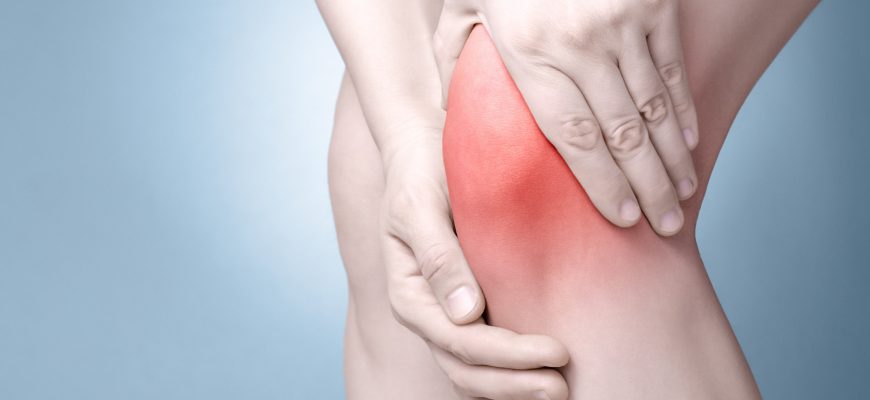Mastering Everything About Degenerative Joint Disease

When most people think of disease, diabetes, hypertension, or respiratory conditions come to mind as the top disabling conditions, right? Well, of course, yes. But the degenerative joint disease also deserves a spot in this group. Wondering why we are saying this or how to treat it? Remember that there are several ways to treat the degenerative joint disease knees suffer from, including lifestyle modifications, medication, and potential surgery to help manage the condition and improve mobility.
Do your knees hurt any time you try to move or walk? Do your fingers burn with every motion? Is the pain you feel in your limbs or your back debilitating to the point when you feel like you can’t do anything?
Well, you need to keep in mind that every 1 in 5 elderly adults experiences problems with mobility, especially veterans. Older adults not only have to deal with weak joints due to the aging process but also with inflammatory conditions of one or more joints that later develop.
There are a number of conditions that affect mobility. So, if you would like to know what these conditions are and if you have them, keep reading.
Degenerative Joint Disease
You should know that dealing with degenerative joint diseases can be difficult, and it is more common than most people think. Remember that the older you get, the more likely you are to develop the condition. Degenerative joint disease is also referred to as osteoarthritis (OA), one of the more usual types of arthritis.
How It Affects Mobility
Degenerative joint disease or Osteoarthritis is a condition that causes joint issues and pain. Although OA can develop on any joint, most adults with degenerative joint disease notice problems with their knees, hands, hips, fingers, neck, or spine.
The condition occurs due to wear and tear of the joints over time. This wear and tear destroy cartilage and thins it out. And without cartilage, the joints no longer have lubrication or shock impact. So, we can say that adults experience joint pain because, after loss of lubrication, the bone rubs against the bone.
Joint stiffness associated with osteoarthritis often happens when adults stand up from a sitting position or work their way out of bed. Always keep in mind that osteoarthritis is different from rheumatoid arthritis (RA). Dealing with osteoarthritis can be challenging, but there are many treatment options available to help manage the condition and reduce pain and discomfort.
Now, if we talk about RA and OA, we can say that although they both result in joint pain, RA causes pain due to chronic inflammation, not mechanical wear. Remember that RA attacks the lining of the joints and can start at any time in life. While OA, on the other hand, is more likely to happen as we age.
Other Conditions That Affect Mobility
You need to keep in mind that degenerative diseases of joints aren’t the only thing that can affect mobility. There are some other conditions as well that a person can get in contract with and experience joint stiffness, with or without inflammation.
1. Gout
Gout is also another type of arthritis. People with gout often complain about extreme joint pain that starts in one joint and it is the big toe most of the time.
You should know that this condition is a result of an accumulation of uric acid depositing itself into the joint. And as we know, joint pain, swelling, and redness can become a real problem.
2. Hypothyroidism
Hypothyroidism is an underactive thyroid, and its main symptoms are weight gain, slow heart rate, and constipation. However, it can result in fatigue and cause joint stiffness as well. You should know that with hypothyroidism, almost every system in the body acts sluggish and “slows down.”
3. Fibromyalgia and Polymyalgia
Fibromyalgia is a chronic pain condition that affects the muscles. It is widespread and issues like fatigue and joint stiffness are common in it.
Polymyalgia, on the other hand, is an inflammatory joint condition that tends to affect people over 50. They also have problems with joint pain in the wrists, hips, fingers, and shoulders.
4. Bursitis
Bursitis happens when the bursae (mini fluid-filled pockets in the joint) burst. In this condition, the little sacs, which are meant to provide cushion to the joints, become inflamed. And this creates pain and mobility issues for adults.
5. Lupus
Lupus is a chronic autoimmune disease that often affects the fingers, knees, and wrists. The symptoms often come and go and the level of intensity ranges from mild to severe.
6. Tarsal Tunnel Syndrome
This is a type of condition that happens when there is a miscommunication of the nerves in the foot. The tibial nerve is needed for the leg to be able to respond to movement and be able to need sensation. The syndrome damages this ability, which can affect the overall movement of the leg.
7. Bone Cancer
Bone cancer can also cause joint stiffness, although it is rare. However, those that do experience it notice joint pain primarily on the long points (arms and legs).
Treating Osteoarthritis: A Way to Ease the Pain?
Now that you know about the deterioration of joints, let us tell you about how osteoarthritis can be treated. Pain and inflammation often work hand in hand for those with joint degenerative disease and other conditions that affect the joint. When you have any of these conditions, you need to learn ways to manage osteoarthritis, live with them, and ease the symptoms. While you may not completely reverse the symptoms, you can ease their intensity and frequency of them.
Remember that you do not have to deal with chronic pain forever when you have joint pain. Incorporating things like exercise, massage, acupuncture, physiotherapy, and physical therapy will work to your benefit.
Trying any one of these methods or a combination of them allows you to increase mobility while decreasing the sensation of pain. And when you take medication for degenerative joint disease along with these activities, it works even better. You should also speak with a doctor to find a physical program that works for you.
Treating Degenerative Joint Disease with Medication at Home
When you have chronic pain, it will usually come and go. Remember that alternative therapy is a great way to address pain, but you may also want to use medication when and where it is appropriate and safe.
Most people with joint pain due to degenerative joint disease or other conditions receive opioids to help control symptoms of pain and help increase mobility and flexibility.
But always keep in mind that you should use medication or get a refill only when you have a prescription. It’s important to follow the frequency and guidelines your doctor suggests in order to prevent drug dependence. And if you need extra assistance making an order online for the medication you need, you can contact us.
Also Read
UNCOVERING TOP 6 EXPERT TIPS FOR A HEALTHY HEART
DISCOVERING IMPACTFUL WAYS FOR TYPE 2 DIABETES MANAGEMENT
Discovering 5 Effective Ways for Prevention of Asthma

There are numerous chronic diseases that we get to hear of, and one of them is Asthma. Some people might take it lightly, but in reality, it is one of the most fatal diseases. This is why we are going to share with you some tips for the prevention of asthma in this blog, so keep reading.
What Is Asthma?
Do you know that asthma is a condition that affects nearly 30 million Americans? Yes, that’s true! Kids and adults are equally likely to have it. Most children with asthma may get cured as they get older, but for some, the condition becomes chronic. The scariest thing about asthma is that if you do not know the symptoms and ways to prevent asthma, the lung condition can kill you. But worry not as there are numerous ways for the prevention of asthma so that you can take better control of your life or your child’s life.
What Are the Ways to Prevent Asthma Attacks?
Here we are sharing with you some expert asthma prevention tips to help you navigate the disease better:
1. Identify Triggers and Stay Away from Them
Asthma attack symptoms are not the same for everyone, but there are some common triggers. Yes, you heard it right! Asthma trigger avoidance can be implemented if you know what factors increase your risk of getting an asthma attack and stay away from them. Common triggers include:
Most people can learn what triggers they need to ignore on their own. But for others, there are triggers they know they have but do not know what the source is.
In times like this, it’s helpful to create an asthma diary to track everything you do and the locations you visit. You should keep a log for several weeks so that you can know your triggers and work on the prevention of asthma attacks.
Find ways to keep your home and workplace free from allergens. It would help if you become mindful of the locations you visit and travel to.
You should know that there are emotional and physical factors that can cause asthma. So, attacks can happen while working out or occur during periods of stress, depression, or shock.
2. Boost Your Immunity
Remember that anyone can benefit from a healthy immune system, especially those who have asthma. You can boost your immune system by taking vitamin C, drinking plenty of water, and eating foods rich in antioxidants and vitamins to equip your body with the nutrition it needs.
Having a strong immune system can prevent you from getting sick often, which can cause attacks. It would help if you also washed your hands often to lower the chances of getting respiratory infections.
If you have several allergies, you may want to consider getting allergy shots for better prevention of asthma. Getting all your vaccinations can also prove to be useful.
Other than getting flu shots to protect you against the flu virus, it will help to get a pneumonia shot (Pneumovax) as well. This is a shot you should get every 5-10 years. Other vaccinations include the zoster vaccine, which shields you from shingles, and Tdap, which protects you against whooping cough, tetanus, and diphtheria.
3. Follow Your Doctor’s Asthma Prevention Strategies.
Your doctor understands your condition and generally tries to create a personalized action plan for asthma attack prevention. They give you your medications and advise you on how to use the peak flow meter.
This meter is sufficient for measuring how well air travels throughout your lungs. It can also let you know in advance when your airways are narrow ahead of time before symptoms show. Yes, that’s true. And this alone can save you from an attack before it happens.
Peak flows let you know how fast you can expel air from your lungs and provide readings to measure your results. But remember that you must understand the zones to see if your breathing is optimal or if you are in danger.
There are also spirometry tests the doctor may add to the plan to see how much air your lungs can contain and how much air you can release following a deep breath. This is known as forced expiratory volume (FEV), and the recording is often expressed as a percentage.
4. Take Your Medications
Asthma attacks account for about 25% of all emergency visits in the US. Yes, that’s true. But it is believed that many of these attacks could have been prevented in situations when asthma medications were taken as prescribed.
You need to keep in mind that one of the key tips for preventing asthma attacks is to take your medications as prescribed by your doctor. This is because it helps address the symptoms and stop them before they can surface. The best way of controlling asthma attacks is with the use of long-term medications like:
- Cromolyn
- Theophylline
- Oral corticosteroids
- Inhaled corticosteroids
- Leukotriene modifiers
- Inhaled long-acting anticholinergics/beta-agonists
There are also medications available that the doctors prescribe to provide fast relief in case you have an attack. They also provide inhaled short-acting anticholinergics and beta-agonists when needed.
Some doctors recommend the use of biological drugs that treat asthma by working with your immune system. This drug works by blocking immune responses responsible for causing the airways to get inflamed and contract. Remember that biological drugs like omalizumab (Xolair) are monoclonal antibodies used in cases of severe symptoms.
5. Take Necessary Precautions
We feel that for the prevention of asthma, it is crucial now more than ever to get as much fresh air as possible. After the coronavirus, more people prefer to stay indoors, and closed spaces pose various risks for people with asthma. Yes, that’s true.
When you are in closed spaces, you are more likely to expose yourself to allergens and infectious diseases. So, it is important to remember the chances of exposing yourself to allergens and viruses when you remain in areas void of ventilation.
Remember that those with asthma are more sensitive to risks and complications related to infectious diseases, so you should be sure to follow the guidelines the CDC advises.
Final Thoughts
All in all, we can say that asthma is a significant problem in the US. And the saving factor about the chronic condition is that it’s controllable. But remember that prevention of asthma is possible only when you follow the above-mentioned tips.
Knowing what your triggers are, boosting your immunity, listening to your doctor, and exposing yourself to fresh air as much as possible is essential. You should never skip taking your medications either. Most doctors prescribe anti-asthmatics, like Asmanex, to their patients.
You need to keep in mind that when you live with asthma for a long time, you must refill the medication often. You can skip the trip to the drugstore by starting an order online to have the life-saving medication you need to be delivered to you.
Also Read
UNCOVERING 6 SURPRISING HEALTH BENEFITS OF WATERMELON
7 GAME-CHANGING TIPS FOR MANAGING TYPE 2 DIABETES
EFFECTIVE WAYS TO PREVENT ACNE FOR CLEAR SKIN IN ADULTS
Sleep Apnea: The Surprising Culprit Behind Your Restless Nights

Do you find yourself tossing and turning at night, struggling to catch your breath? If yes, it could be a surprising culprit – Sleep apnea. This condition can cause interruptions in breathing during sleep. Moreover, it might eventually lead to restless nights and potentially serious health consequences.
In this blog, you will learn about the causes, symptoms, and treatments of sleep apnea. So, keep reading!
What Is Sleep Apnea?
To begin with, Sleep Apnea is when an individual thinks that they are resting but, there is a complication that is interrupting their sleep continuously throughout their bedtime hours. This in return leaves them waking feeling really unrested and as if they need to go right back to sleep. It can be considered as a sleep disorder that is often caused by a blockage in the airway or by the brain failing to signal the muscles to breathe.
Now, there are 3 different types of sleep apnea that an individual can suffer from. The types include obstructive sleep apnea, central sleep apnea, and complex sleep apnea. Each of these types of sleep apnea varies in degree of severity and the symptoms that are felt.
But the most important thing to understand is what causes these types of sleep apnea and how they can be prevented.
Exploring the Three Types of Sleep Apnea and Their Underlying Causes
- Obstructive Sleep Apnea (OSA) is the most common type of sleep apnea. It occurs when the tissues at the back of the throat relax during sleep, which can block the airways and cause loud snoring. These blockages can cause you to stop breathing for short periods, leading to disrupted sleep and daytime fatigue.
- Central Sleep Apnea is less common and involves the central nervous system failing to signal the muscles that control breathing. Unlike OSA, people with Central Sleep Apnea typically don’t snore, and they may wake up gasping for breath or feeling short of breath. The condition can also cause insomnia and daytime fatigue.
- Lastly, Complex Sleep Apnea is a combination of both Central and Obstructive Sleep Apnea. This condition is relatively rare and can be challenging to diagnose and treat. People with Complex Sleep Apnea are at a higher risk of developing complications, including high blood pressure, heart disease, and stroke.
Want to know about its symptoms? Read on without hurry.
Sleep Apnea: Signs to Look Out for and Potential Complications
This Sleep disorder is characterized by breathing pauses during sleep, loud snoring, and frequent awakenings during the night. While many people who have Sleep Apnea may not realize it, there are several sleep apnea symptoms to look out for. These include:
- Loud, chronic snoring
- Gasping or choking during sleep
- Waking up with a dry mouth or sore throat
- Morning headaches
- Difficulty staying asleep
- Daytime sleepiness or fatigue
- Irritability or mood swings
- Memory or concentration problems
Additionally, if you or any of your relatives are experiencing any of these symptoms, it’s essential to talk to your doctor. If left untreated, Sleep Apnea can lead to several complications, including:
- High blood pressure
- Heart disease
- Stroke
- Diabetes
- Depression
- Worsening of ADHD symptoms
- Increased risk of accidents due to daytime sleepiness
Fortunately, there are several effective treatments available for Sleep Apnea. Know about it below.
Preventing Sleep Apnea: Treatment and Prevention
Treatment options for sleep apnea include:
- Continuous Positive Airway Pressure (CPAP) therapy, which uses a machine to deliver air pressure to keep the airway open
- Oral appliances, which can help keep the airway open by moving the jaw forward
- Surgery, which may be recommended in severe cases to remove tissue or reposition the jaw
Lifestyle changes that can help prevent sleep apnea or improve symptoms include:
- Losing weight if necessary
- Avoiding alcohol and sedatives, which can relax the airway muscles
- Sleeping on your side instead of your back
- Keeping the nasal passages open with saline sprays or allergy medications
- Quitting smoking, which can reduce inflammation in the airways and improve breathing
By following the above-mentioned Sleep apnea treatment and prevention tips, you can make sure to reduce the risk of getting one.
Sleep Apnea Treatment
In sleep apnea diagnosis in most cases, the patient has been prescribed a CPAP treatment. Continuous Positive Airway Pressure treatments allow the patient to wear a mask while sleeping over the nose and mouth that in return delivers continuous pressure through the airways thus preventing sleep apnea disturbances from occurring.
Bottom Line
Overall, Sleep apnea can be a serious and often overlooked condition that disrupts the quality of sleep and overall health. If you or someone you know is experiencing symptoms such as snoring, excessive daytime sleepiness, or morning headaches, it is important to seek medical attention and potentially undergo a sleep study to diagnose and treat any underlying sleep apnea. With proper treatment and management, individuals can improve their sleep quality and overall well-being.
Also Read
UNCOVERING TOP 6 EXPERT TIPS FOR A HEALTHY HEART
7 GAME-CHANGING TIPS FOR MANAGING TYPE 2 DIABETES
DISCOVERING 5 EFFECTIVE WAYS FOR PREVENTION OF ASTHMA
10 Dangerous Effects of Stress on Your Health and Happiness

Do you know that your body faces toxins every day and one of these toxins is stress? Yes, that’s true! Stress can greatly affect your health and it can be very detrimental. Stress causes high blood pressure; it can cause heart conditions and can cause you to feel miserable. In fact, the effects of stress can even make you physically ill if you allow it to.
Everyone has had a situation that literally made them feel physically ill. This is usually brought on by stress and finding a way to reduce it can be very beneficial to your health. So, do you want to know how stress can affect you and your health? Well, here are the top can ways stress can affect you:
1. Stress Can Cause Fat Storage
Stress and weight gain are often connected. When you’re stressed your body stops producing some of the important genes that can stop fat storage, and maybe this is one of the biggest physical effects of stress. Due to this, you begin to store fat to deal with the stress. But this only leads to a vicious circle and your body stores more and more fat causing you to become overweight.
2. It Can Destroy Your Sleep Cycle
You should know that constant stress can lead to difficulty in sleeping as you might end up taking the stress and thinking of things instead of sleeping. This, in the long run, can completely destroy your sleep cycle and lead to mood swings and irritation.
3. Stress Can Cause Brain Damage.
If we talk about the psychological effects of stress, we can say that high-stress levels can lead to serious burnout. Also, long turn stress can become chronic and affect your memory and your ability to fight off infections and other conditions.
4. It Can Impact Your Immune System
Another one of the major effects of stress is that it can lead to the immune system shut down, creating inflammation in your body. Moreover, stress can affect your joints and other areas of the body as well. This is why many people suffer from cold sores when they become stressed.
5. Low Energy Level
Low energy level is yet another one of the effects of stress. Remember that the more stressed you are, the less energy you have to use. This is because the stress levels in your body are using up your energy resources. And once you start reducing your stress, your energy begins to get restored.
6. It Leads to Toxin Storage in Body
When you’re stressed your body isn’t able to metabolize medications and toxins that you’re exposed to on a daily basis. Furthermore, you begin to crave foods that aren’t healthy for you and aren’t able to fight your cravings.
7. It Can Cause Heart Problems
Now, if we talk about the long-term effects of stress, it leads to major health problems. If you’ve ever experienced a rapid heart rate or high blood pressure, stress may well be a contributing factor to your condition. You should know that stress and cardiovascular health are very much related, so reducing stress can greatly benefit your health.
8. It Affects Your Sex Drive
Another one of the big negative effects of stress of sex is that it affects the sex drive and leads to a decrease in libido. Chronic stress can change the hormones in your body and affect your sex drive. Reducing stress can improve this condition.
9. It Affects the Tolerance for Pain
Stress can greatly affect your ability to deal with pain. If you lower your stress, you may have a high tolerance to pain and be better able to deal with any pain you experience.
10. It Can Upset your digestion
Finally, Stress can also cause a myriad of digestive issues including irritable bowel and the overgrowth of bacteria that can negatively affect your digestion.
Overall, as you can see, there are myriads of negative effects of stress on your body. And this is why it is always being suggested to stay calm and away from stress. As per Doctors, they have noticed that many patients find relief from their health conditions after reducing stress. So why not indulge in some good practices to stay away from stress.
Hope this blog will help you!
Also Read
UNVEILING THE SECRET FOODS THAT REDUCE ANXIETY
7 GAME-CHANGING TIPS FOR MANAGING TYPE 2 DIABETES
DISCOVERING 5 INCREDIBLE HEALTH BENEFITS OF FATS
Discovering The Benefits of Healthy Relationships on Health

Did you know that being married could have significant impacts on your health? Yes, you heard it right! Studies have found that falling in love and staying in love can have whole-body impacts that will make you feel better. Want to know about some of the benefits of healthy relationships? If yes, keep reading.
What Are the Benefits of Healthy Relationships?
Here we are going to tell you about the pros of a relationship on your health:
Lowers Your Blood Pressure
The social support that you get from being married or being in a stable relationship can decrease stress and can naturally lower your blood pressure. Studies have found that one of the many pros of relationships is that happily married people have a lower blood pressure than those who are not in a committed relationship.
Longer Life Span
Another one of the benefits of healthy relationships is that it contributes to a long life. Studies have also found that a steady, committed relationship has a longer-than-average life span. This has been found to be more for men than women, but it is something to be considered, as everyone wants to live longer.
Lowers Risk of Disease
You should know that one of the many benefits of a healthy relationship is that it lowers the risk of all kinds of diseases, then be it diabetes, heart disease, or lung disease. Yes, that’s true. Studies have found that people who are married or are in a steady relationship have a much lower risk of disease.
Decreased Risk of Depression
Marriage and mental health are related as marriage can have a positive impact on mental health. Yes, there are many health benefits of marriage for mental health. Depression is decreased in those people who are in a committed relationship. This is most likely due to the steady support system that is found in a loving relationship. So, we can say that one of the biggest benefits of healthy relationships is that mental health all around is more positive in people who have a steady partner.
Good for Your Sex Life
One of the best healthy relationship benefits is a better sex life. Studies have found that people in a healthy and committed relationship have more sex than people who are single. Doesn’t that make you feel good?
Conclusion
All in all, we hope you understand that there are all sorts of benefits of healthy relationships. Being in a committed relationship impacts you both physically and mentally. When you are in this type of loving relationship, you will be happier and feel better as well.
Also Read
Discovering 5 Incredible Health Benefits Of Fats
10 Dangerous Effects Of Stress On Your Health And Happiness
Discovering The Benefits Of Healthy Relationships On Health
Say No To These 7 Most Addictive Foods For A Healthier You
Uncovering Top 6 Expert Tips For A Healthy Heart
Uncovering Secret Home Remedies to Deal with Seasonal Allergies

If the warmer temperatures and the blooming flowers haven’t clued you in, the arrival of seasonal allergies is sure to let you know that spring is here. Well, many people deal with such allergies, right? Well, of course, yes.
But, if the symptoms have notoriously let loose upon you, don’t lose hope as you are not the only one. Many people experience seasonal allergy symptoms such as runny nose, irritated eyes, and congestion. But for seasonal allergy relief, there are several home remedies along with the additional aid of allergy medication.
4 Home Remedies for Seasonal Allergies to Alleviate Your Symptoms.
-
Avoid High Pollen Counts
Before heading outside, plan ahead and check the local pollen count. Avoiding the outdoors when the pollen count is high is the best way to deal with seasonal allergies, especially if pollen is an allergen for you. Remember that pollen counts are usually higher during midday, 10 am to 2 pm. But some other factors including humidity and location also affect the pollen count as well. So, planning outdoor activities when the pollen count is low is an ideal way to get natural relief from seasonal remedies and will also help you enjoy your day without the interference of allergies.
-
Keep Your Clothes Clean
If you are wondering how to stop seasonal allergies, remember that one of the best home remedies for seasonal allergies is keeping your clothes clean. After being outside, change your clothes after taking a shower. This will minimize your exposure to outdoor allergens. Remember that this is beneficial if you happen to step out when the pollen count is high
-
Use Dryer at Home
If you don’t suffer from seasonal allergies, it is best to leave your clothes hanging outside to dry as it’ll help you save energy as well. But for those who are dealing with seasonal allergies, it is best if you use the dryer because hanging laundry outside will cause a large build-up of allergens on your clothes.
-
Focus On Good House Keeping
If you also suffer from year-round seasonal allergies, then it is best to prevent them from occurring as well because when it comes to allergies, the more is not the merrier. Typical year-round allergies, often caused by allergens such as dust and mold, are best avoided when there is no place for the accumulation of said allergens. Mold typically accumulates in the bathroom, thus, to avoid mold growth, leave the fan running up to thirty minutes after a shower or bath. Also, you should reduce the clutter in your home to make sure that there is no dust getting collected anywhere.
Final Words
I hope that now you know what to do for seasonal allergies. Just make sure that you use the above-mentioned remedies, and you will be able to fight seasonal allergies effectively.
Also, Read
SAY GOODBYE TO DRYNESS WITH EFFECTIVE WINTER DRY SKIN REMEDIES
10 DANGEROUS EFFECTS OF STRESS ON YOUR HEALTH AND HAPPINESS
10 FOODS THAT REDUCE ANXIETY AND THE ONES THAT WORSEN IT
Effective Ways to Prevent Acne for Clear Skin in Adults

In adults, the best ways to prevent acne may include maintaining a consistent skincare routine, avoiding harsh or drying products, and managing stress levels to keep skin healthy and clear. Want to know more about such tips in detail? If yes, keep reading as we are going to give you some expert tips to reduce acne.
Adult Acne Is a Silent Attacker
Waiting to break out right before some of the most important parts of your life: the prom, the first interview, the wedding? I know exactly what it’s like to have perfect skin for your whole adolescent life, and then be slapped in the face with breakouts randomly at age 18. It’s roughly like a truck of misfortune sideswiping you as you try to cross the street into adulthood.
I have also met many people who have struggled with acne their entire life, constantly feeling embarrassed and wondering how they can get rid of this inconvenience. Acne is caused by many things, one of the main ones being dirty substances meeting your face. After all this, it is quite common if you want to know about ways to reduce acne. You need to keep in mind that there are several strategies you can try. There are many proven medical acne medications that can work. But there are also (sometimes) easier solutions, some of which can be the best ways to prevent acne.
Best Acne prevention tips for treating adult acne –
1. Cleanliness is Next to Attractiveness
One of the best things to do to prevent acne is to always keep your face clean, even if there is no sign of a breakout. The incredibly high number of germs and bacteria that the human face encounters on a daily basis is what causes acne, and keeping a clean face as often as possible is the best way to stop acne. The most common way that these bacteria contact our faces is through the fingers. This means that reducing the amount you touch your face every day can also drastically reduce the risk you have of a breakout.
2. Consider using Sunscreen
The sun plays a huge part in how our skin acts. The sun can cause wrinkles, sunburn, freckles, and most of all, acne, and that is why the best acne prevention tip is to use sunscreen! The sunblock you can find at your local convenience or grocery store isn’t just there to ensure that you don’t leave the beach looking like a firetruck with a brand-new paint job. It is also there to prevent the sun’s ultraviolet rays from doing significant damage to your skin in all regards.
Although it’s always nice to have that nice, tan beach body, the pimples, and zits you could obtain from a lack of sunblock will not look good. This is why making sure to always use good products to prevent acne such as the SPF15 sunblock whenever you go outdoors on a sunny day is a very important part of acne prevention.
3. Avoiding Stress Is One of the Best Ways to Prevent Acne
I have seen many people wondering whether stress causes can or not. Well, the answer is a resounding yes! Many experts will attest that our emotional stability (or instability) is directly related to all aspects of our bodily health, and the condition of our skin is no exception. If the level of stress you experience daily is causing breakouts of acne, you definitely want to take some time out of your day to find some ways to relax, whether it be a long shower, meditation, or just listening to some music. So, it won’t be wrong to say that staying happy and not stressing too much is one of the best ways to prevent acne.
The bottom line is this:
It is a well-known fact that various day-to-day things have a huge effect on our skin’s health. But before you go rushing to the stores to buy the newest “miracle cure”, try the above-mentioned tips as they are surely the best ways to prevent acne and will keep your skin looking smooth and beautiful.
Also Read
10 DANGEROUS EFFECTS OF STRESS ON YOUR HEALTH AND HAPPINESS
MASTERING EVERYTHING ABOUT DEGENERATIVE JOINT DISEASE
DISCOVERING 5 INCREDIBLE HEALTH BENEFITS OF FATS
Say Goodbye to Dryness with Effective Winter Dry Skin Remedies

Is your skin ready to handle the cold when winter comes, or does it get dry and flakey? Well, dry skin is a common problem in winter as low temperatures, low humidity, and strong winds can diminish the natural lipid layer, natural oils, and moisture of the skin.
So, do you want to know about some great winter dry skin remedies? If yes, keep reading as we are going to give you some effective tips.
Winter Skincare: A Complex Task
Winter skincare is surely a complex task to perform, isn’t it? We are saying this because it involves taking extra steps to protect and moisturize the skin during the colder months when the air is dry, and the weather can be harsh. Remember that you should never consistently apply moisture to the skin as that will cause it to dry out faster. Locking moisture in is the best action.
During the winter, we use our heaters all the time. You should know that the dry air from furnaces and other heating sources causes the skin to lose moisture quickly. But, when you use the winter skin care tips that we are going to mention below, your skin will be a lot better.
Effective Winter Dry Skin Remedies for You
-
Lukewarm water Is Better Than Hot Water
When using water to wash your hands or take a shower, using lukewarm water instead of hot water will reduce dryness. Remember that this is the biggest of the tips for dry skin in winter. But, if you cannot resist hot showers, then try to cut down the amount of time you spend in the shower to help your skin stay healthy.
Even though it is cold, avoiding drying chemicals and heat from a hot tub will help your skin. After showering or washing your hands, apply moisturizer while the skin is still damp to lock in moisture. We believe that the best lotions would be the ones containing 100% Shea butter or Cetaphil Lotion. Also, when drying the skin, it is best to pat the skin instead of rubbing it to avoid dryness brought on by friction.
-
Avoiding Soap Is a Good Idea
We all know that soaps are a big thing for the skin, right? Well, of course! But one of the best winter dry skin remedies is to avoid using soap. Wondering why? That’s because soaps dry out your skin in winter. If you still can’t live without using soaps, you better use soaps that contain glycerin or petroleum such as Aveeno body wash.
-
Hydrating dry skin
Another great dry skin in winter remedy is to prevent your skin from drying out by keeping it hydrated. Remember that it’s best to exfoliate once a week or every other week. Using a salt or a sugar scrub when the skin is dry will give it a smooth texture that you cannot resist. Moreover, applying face lotion will help your skin as well.
The place on your skin that needs the most attention is your lips. This is because lips do not hold in as much moisture as the rest of our body, making them dry out faster. Something everyone does is lick their lips but licking your lips causes them to dry out faster. Yes, that’s true. Using a simple lip balm will keep your lips moisturized for winter. Moreover, to get dead flakes off of your lips, you can use a toothbrush in a circular motion on your lips to remove dead flakes.
All in all, it won’t be wrong to say that skin and lips need to be taken care of during the winter. Before you go outside, put on some moisturizer to keep your skin from drying out. Take care of your skin with the winter dry skin remedies mentioned above, and you’ll see how it stops the itchiness and redness.
Also Read
EFFECTIVE WAYS TO PREVENT ACNE FOR CLEAR SKIN IN ADULTS
DISCOVERING 5 INCREDIBLE HEALTH BENEFITS OF FATS
10 FOODS THAT REDUCE ANXIETY AND THE ONES THAT WORSEN IT
UNCOVERING SECRET HOME REMEDIES TO DEAL WITH SEASONAL ALLERGIES
Everything About Chronic Obstructive Pulmonary Disease

We all know about a variety of diseases, but have you heard of chronic obstructive pulmonary disease? Well, it is one of the most dangerous diseases related to the lungs. So, do you want to know about it in detail? If yes, keep reading!
Understanding Chronic Obstructive Pulmonary Disease (COPD)
Before moving any further, let’s first focus on ‘what is COPD’. What does COPD stand for? Well, it is a progressive lung disease that makes it hard to breathe. COPD occurs when the passages to the lungs get obstructed, lose their elasticity, or become thick and inflamed.
Obstructive Pulmonary Disease – What Are Its Causes?
Cigarette smoking is the leading cause of chronic obstructive pulmonary disease. It has been seen that most people with COPD either smoke or used to smoke in the past. Other causes of chronic obstructive pulmonary disease include long-term exposure to pollutants, chemical fumes, and dust.
Chronic Obstructive Pulmonary Disease: A Look at Its Types
You need to keep in mind that obstructive lung disease is of two types. Emphysema occurs when the walls of the air sacs in the lungs are damaged. The sacs become floppy, and the exchange of gases in the lungs gets reduced.
On the other hand, people who have chronic bronchitis find that their airways are constantly irritated and inflamed. This causes the lining of the airway to thicken, and leads to the production of excess mucus, making it difficult to breathe.
Remember that most people who have chronic obstructive pulmonary disease have both Emphysema and Chronic Bronchitis, so the term “COPD” is used universally.
What Are the Symptoms of Chronic obstructive pulmonary disease?
The symptoms of chronic obstructive lung disease come on gradually and eventually become so severe that they limit daily activities. Some of the most common symptoms include:
- Shortness of breath
- Wet cough, with excess mucus
- Frequent lung infections that are difficult to treat
- Wheezing
- Fatigue
- Unintended weight loss
Pathophysiology Of Chronic Obstructive Pulmonary Disease – Treatments
After getting familiar with all the COPD information, let’s now understand its treatments. Although there is no cure for COPD and doctors have not yet figured out how to reverse the damage, the symptoms can be managed. Yes, you heard it right. Lifestyle changes coupled with treatment allow most people to live productive lives despite the disease. Treatment options include:
Bronchodilators (Short-acting Beta 2 agonists):
These are fast-acting inhalers that open the air passages and make breathing easier. They are designed for “instant relief”, but the effects are short-lived. Side effects include a headache, muscle cramps, shakiness, rapid heartbeat, insomnia, and irritability.
Bronchodilators (Long-acting Beta 2 agonists):
These inhalers work the same way as short-acting agonists, but the effects are more long reaching. Rather than being an “emergency” medicine, these are maintenance medications designed to control the symptoms of COPD. The side effects are the same as the short-acting inhalers.
Bronchodilators (Anticholinergics):
These are also inhalers but are designed for long-term usage at all stages of COPD.
Other than the above-mentioned ones, some oral medications and oxygen therapy are also used to treat chronic obstructive pulmonary disease.
Final Words
We hope that after all this information if someone asks you to define COPD or talk about it, you will be able to do so. Remember that chronic obstructive pulmonary disease cannot be cured or reversed, but it can be prevented. If you are a smoker, stopping now will help in decreasing your chances of getting COPD, and if you already have it, stopping smoking will help to lessen your symptoms and increase the chances of successful treatment.
Also Read
SLEEP APNEA: THE SURPRISING CULPRIT BEHIND YOUR RESTLESS NIGHTS
RECOGNIZING THE SILENT SYMPTOMS OF GERD BEYOND HEARTBURN
MASTERING EVERYTHING ABOUT DEGENERATIVE JOINT DISEASE
EXPLORING THE INTRICATE LINK BETWEEN CORTISOL AND SLEEP PATTERNS
TIPS TO MAINTAIN AN ACTIVE LIFESTYLE WITH EARLY ONSET ALZHEIMER’S
Uncovering the Truths Behind Common Health Myths

It’s not uncommon for people to believe certain health myths, right? Well, of course, yes! But are all those myths about health true? Well, questions have been risen related to the authenticity of many of these myths. Whether they are true or not, most myths will cause you to re-evaluate your own health choices. Remember that you should never fall for those myths. You should believe in the facts and make informed decisions about your well-being.
Busting the Myths of Health – Separating Fact from Fiction.
Health Myth One: Milk Does Wonders
Dr. T. Colin Campbell PhD., a respected nutrition and health researcher, has discovered the truth about the effects of protein in our milk. Yes, you heard it right! According to his research in ‘The China Study,’ Dr. Campbell found that the main protein found in milk, Casein, (found in 87% of cow’s milk) “…promoted all stages of the Cancer process.” Results indicated that abstaining from consuming milk and any form of animal protein halted the growth of cancerous tumors. So, if the research is to be believed, the health myths about milk being great for health are wrong.
Health Myth Two: Herbs Are the Way to Go!
Many people believe that herbs are the answer to all their health problems, right? Moreover, there are many myths in the health sector about the supposed benefits of herbal remedies. It’s true that some herbs are great but thinking that a product is harmless just because it contains herbs is wrong. You should not get fooled by the health myths about herbs being harmless. Kava, known to reduce anxiety, has been shown to be toxic to the liver.
Other herbs, such as Ginkgo Leaf Extracts, are known to cause headaches rather than improve mental clarity, or work to treat dementia and peripheral vascular disease. St John’s Wart, Echinacea, German Chamomile, and Ginkgo biloba have been reported to cause allergic reactions. This is why we believe that it is smart to consult your physician on natural products or supplements to see if they fit your health needs.
Health Myth Three: Constricting Calories Will Help in Weight Loss
Another one of the most famous myths of health is about less calorie intake leading to weight loss. Though it is important to moderate your calorie intake, it is much more essential to watch your sugar intake. Yes, that’s true!
We are saying this because minimizing your glucose intake will significantly aid in your weight loss battle. Remember that an excess of glucose is the major cause of fat storage. So, by moderating your glucose levels, you can make your weight loss journey easier. Make sure to also engage in weight training and moderate periods of cardio, instead of believing in health myths, as it is an effective way to burn fat.
Health Myth Four: Fresh Fruits and Vegetables Are More Nutritious Than Canned or Frozen
This is yet another one of the health misconceptions which says that fresh fruits are always more nutritious than canned fruits. Well, it depends on two different factors: how long the fruit or vegetables have been in the fridge, and how long they’ve been cut and are kept out on the counter.
Remember that leaving fruits and vegetables in the fridge for long periods of time causes them to lose vitamins. In this case, fresh fruits might not have the same nutritional value as canned or frozen. Also, leaving cut-up fruits or vegetables out on the kitchen counter for more than 20 minutes results in vitamin loss due to air exposure. As a result, canned or frozen fruits can be just as rich in vitamins as fresh fruits.
Health Myth Five: The Road to Perfect Skin Is Through Washing and Moisturizing!
Taking care of your skin is important, however, there is a direct connection between the food you digest and the condition of your skin. Remember that an unhealthy lifestyle will cause more of a strain on your liver and kidney. Because the skin is also an organ used to eliminate waste, these results will be apparent on your skin. So, the healthcare myths regarding washing and moisturizing skin being the only key to healthy skin is not true. You should keep in mind that the cleaning regimes are not always as important as the food which is consumed.
Final Words
We hope that now you know the truth behind all the popular health myths. So, don’t let all these myths fool you anymore. Remember that instead of following the common health myths blindly, it’s better to know the reality and facts behind them so that you can make the right choices.
Also Read
COMBATING SKIN INFECTIONS IN WRESTLING: HARNESSING THE POWER OF WIPES
DISCOVERING THE BENEFITS OF HEALTHY RELATIONSHIPS ON HEALTH
UNVEILING THE SURPRISING COCONUT WATER BENEFITS ON HEALTH

